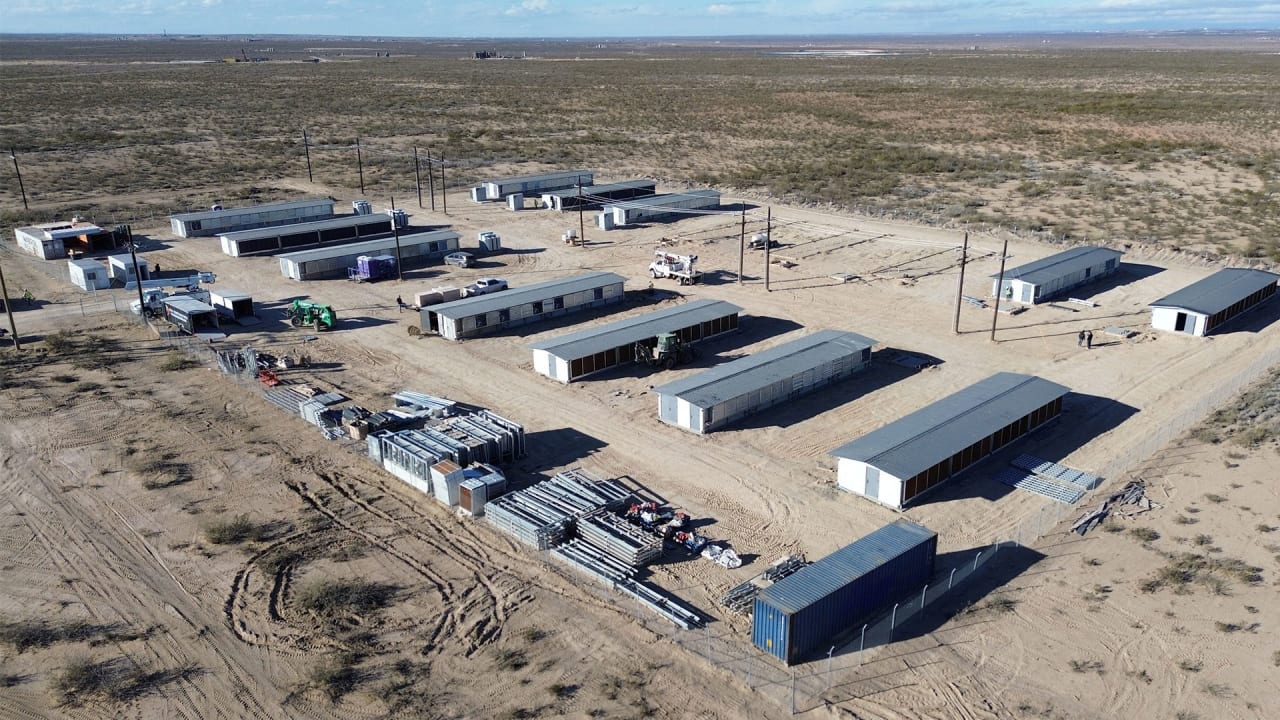Adapting to AI and New Technologies for Business Success Today

Key Takeaways

- Embrace Change: Adapting to AI and new technologies is crucial for maintaining competitiveness and efficiency in today’s fast-paced business environment.
- Leverage AI Benefits: Using AI can automate tasks, enhance customer experiences, and improve decision-making through data analytics, setting your business apart from competitors.
- Assess Needs Strategically: Identify specific challenges and areas for improvement within your business to determine how technology can provide value and streamline operations.
- Invest in Training: Bridging skill gaps through training and development ensures that your team can effectively utilize new technologies and remain engaged in the transition.
- Address Resistance: Communicate the benefits of AI to employees to alleviate fears and foster a culture of acceptance and innovation, crucial for successful implementation.
- Stay Informed on Trends: Keeping up with emerging technologies and trends allows businesses to adapt more readily, ensuring sustained growth and improved operational efficiency.
In today’s fast-paced world, adapting to AI and new technologies isn’t just an option; it’s a necessity for your business. As innovations reshape industries, staying ahead means embracing these advancements rather than resisting them. You’ll find that integrating AI can streamline operations, enhance customer experiences, and drive growth.
Understanding how to leverage these tools effectively can set you apart from competitors. Whether you’re a small startup or an established enterprise, adapting to technology can unlock new opportunities and improve efficiency. Let’s explore the key strategies that will help you navigate this evolving landscape and ensure your business thrives in the digital age.
Understanding AI and New Technologies

Understanding AI and new technologies enhances your business operations. Adapting these tools can streamline workflows and improve efficiency.
Definition of AI
Artificial intelligence (AI) refers to computer systems that perform tasks typically requiring human intelligence. This includes learning, reasoning, and self-correction. You can utilize AI in various applications, such as customer relationship management (CRM) software, which automates interactions and improves customer satisfaction. Machine learning, a subset of AI, enables systems to learn from data, enhancing decision-making.
Types of New Technologies
Numerous new technologies are available to boost your small business’s effectiveness. Consider the following categories:
- Cloud Computing: Access data and applications over the internet. Cloud storage provides cost-effective solutions for data backup and collaboration.
- Business Automation: Streamline repetitive tasks with automation software, reducing manual workload and minimizing errors.
- Digital Marketing Tools: Improve outreach with SEO tools, social media tools, and online advertising platforms. These tools help enhance your visibility and reach.
- E-commerce Platforms: Simplify online sales with dedicated platforms that facilitate secure payments and inventory management.
- Productivity Tools: Use digital tools that enhance collaboration among teams, especially for remote work. Video conferencing and remote collaboration tools facilitate effective communication.
By staying informed about these technologies and integrating the right solutions, you transform your business and adapt to the fast-paced digital landscape.
The Importance of Adapting to AI

Adapting to AI is essential for your business to stay competitive in today’s technology-driven landscape. Embracing AI and its associated technologies helps streamline operations and improve customer experiences.
Competitive Advantage
AI offers you a substantial competitive advantage. By utilizing data analytics and machine learning, your business can enhance decision-making processes. AI systems analyze large datasets quickly, allowing you to make informed choices that might otherwise require extensive human resources. For example, in finance, AI detects patterns and assesses risks more accurately than human analysis, leading to better investment strategies.
Integrating AI into your software solutions boosts scalability. As your business grows, advanced technology solutions can adapt, making it easier to manage increased workloads. Using cloud-based solutions or CRM software helps facilitate this growth and enhances overall efficiency.
Enhancing Efficiency
AI significantly enhances your business efficiency. By automating repetitive tasks, you free up valuable time for your team to focus on more strategic and complex work. For instance, businesses have reported saving up to 30% of time on tasks like generating internal reports through automation software.
Implementing business automation tools not only cuts down on labor costs but also streamlines workflows. Reducing time spent on mundane tasks allows your staff to engage in activities that drive revenue. Additionally, adopting cloud storage and other digital tools enables secure, efficient management of your IT infrastructure and resources.
Incorporating these technologies leads to increased productivity and more effective use of your existing resources. Moreover, investments in tech innovations reflect positively on your brand, making your business more attractive to clients and customers who value efficiency and modern solutions.
Strategies for Implementation

Adapting to AI and new technologies involves strategic decisions and careful planning. The following strategies can help you effectively implement these advancements in your business.
Assessing Your Business Needs
Identify specific challenges your business faces. Examine areas where small business technology can add value, such as:
- Automating processes to improve efficiency
- Enhancing customer experiences through CRM software
- Utilizing data analytics for informed decision-making
- Discovering new market opportunities with e-commerce platforms
- Tailoring product offerings to better meet customer needs
Assess your current IT infrastructure, including data quality and governance. Ensuring you possess a solid foundation supports your technology solutions and fosters effective technology adoption across your business.
Training and Development
Bridge skill gaps critical for leveraging AI and digital tools. Focus on areas such as:
- Machine learning for advanced data analysis
- Data engineering to manage and manipulate large datasets
- Cybersecurity measures to protect your IT infrastructure
Consider whether to upskill existing employees through targeted training programs or recruit new talent. Foster collaboration across departments, ensuring alignment between IT, data management, and overall business goals. Continuous education keeps your team abreast of tech trends, enabling you to navigate the evolving landscape of business automation effectively.
Challenges in Adapting to AI

Adapting to AI poses several challenges for small businesses. Recognizing these obstacles can help you navigate them more effectively.
Resistance to Change
Resistance to change often stems from employee fears about job displacement or alterations to their work routines. Many employees may feel uncertain about new technologies, which can hinder adoption. Clear communication about AI’s benefits, including increased efficiency and enhanced productivity, fosters acceptance. Training initiatives that address the knowledge gap play a crucial role; about 52% of workers lack effective AI usage skills. Engaging your team in discussions about technology solutions can help alleviate concerns and encourage a culture of innovation.
Resource Allocation
Allocating resources effectively is vital for AI implementation. Financial investments in AI tools or business software, like CRM software or automation solutions, can significantly impact your budget. It’s essential to consider your tech infrastructure when making these investments. Hiring or upskilling employees in areas like data analytics or cybersecurity ensures your team can leverage these tools securely. Time dedication for testing and fine-tuning your AI systems is also necessary. Focus on tech solutions that align with your business goals, as this enhances your overall adaptability to technology trends.
Future Trends in AI and Technology

AI and technology trends are shaping the landscape of small businesses. Embracing these advancements leads to strategic advantages, improved efficiency, and enhanced customer experiences.
Emerging Technologies
Emerging technologies significantly impact how small businesses operate. Here are key innovations to watch:
- Automation Software: Automate routine tasks with business automation tools, allowing your team to focus on high-value activities. This includes everything from scheduling to communications.
- Cloud Computing: Leverage cloud-based solutions for data storage and collaboration. This technology ensures your files are accessible anywhere, providing flexibility for remote work and enhancing productivity.
- Data Analytics: Utilize data analytics for informed decision-making. Advanced analytics tools help identify customer trends and optimize marketing strategies, driving growth.
- CRM Software: Implement CRM software to enhance customer relationship management. Use these platforms to streamline communications and improve customer satisfaction through personalized interactions.
- Cybersecurity Measures: Protect your data with robust cybersecurity protocols. In a digital landscape, securing sensitive information is crucial for maintaining trust and compliance with data protection regulations.
Predictions for Business Adaptation
To adapt effectively to AI and technology, consider these strategies:
- Agile IT Infrastructure: Cultivate an agile IT infrastructure. Flexibility allows quick adjustments to changing market conditions and ensures your technology solutions remain relevant.
- Continuous Training Programs: Invest in continuous education for your team. Regular training on new software solutions and digital tools keeps employees proficient and ready for tech innovations.
- Embrace Tech Integration: Integrate various digital tools and platforms to create seamless workflows. Improved tech integration enhances operational efficiency and fosters collaboration.
- Focus on Data Security: Prioritize data security as you adopt new technologies. Implementing stringent cybersecurity measures protects business information and customer data.
By staying aware of technology trends and implementing relevant tools, you can enhance your small business’s adaptability and ensure lasting success in the evolving landscape.
Conclusion

Embracing AI and new technologies isn’t just a trend; it’s a necessity for your business’s survival and growth. By integrating these tools into your operations, you’re not only enhancing efficiency but also unlocking new opportunities for innovation and customer engagement.
Staying informed about emerging technologies and continuously upskilling your team will ensure you remain competitive in an ever-evolving landscape. As you adapt to these changes, remember that clear communication and strategic resource allocation are vital.
The future is bright for those who take the leap into the digital age. So equip your business with the right technologies and watch it thrive.
Frequently Asked Questions

What is the importance of adapting to AI and new technologies for businesses?
Adapting to AI and new technologies is vital for businesses to remain competitive. These innovations streamline operations, enhance customer experiences, and drive growth. Understanding how to leverage these tools can unlock new opportunities and differentiate businesses, regardless of their size.
How does AI enhance business operations?
AI enhances business operations by performing tasks that require human-like intelligence, such as learning and data analysis. This capability improves decision-making, automates repetitive tasks, and increases efficiency, allowing teams to focus on strategic initiatives.
What are some key technologies that benefit small businesses?
Key technologies that benefit small businesses include cloud computing, business automation tools, CRM software, digital marketing tools, and e-commerce platforms. These tools enhance productivity, streamline workflows, and improve customer interactions.
What strategies should businesses use to implement AI effectively?
Businesses should assess specific needs, evaluate existing IT infrastructure, and provide training to bridge skill gaps when implementing AI. Collaboration across departments helps align technology initiatives with overall business goals.
What challenges do small businesses face when adapting to AI?
Small businesses often encounter resistance to change, fear of job displacement, and uncertainty about new technologies. Clear communication about AI benefits and effective resource allocation can help overcome these challenges.
What future trends in AI and technology should businesses be aware of?
Businesses should stay informed about emerging technologies like automation software, data analytics, and cybersecurity measures. Focusing on agile IT infrastructure and continuous training will help them adapt effectively in the evolving landscape.
Image Via Envato
This article, "Adapting to AI and New Technologies for Business Success Today" was first published on Small Business Trends
What's Your Reaction?
 Like
0
Like
0
 Dislike
0
Dislike
0
 Love
0
Love
0
 Funny
0
Funny
0
 Angry
0
Angry
0
 Sad
0
Sad
0
 Wow
0
Wow
0
































































































